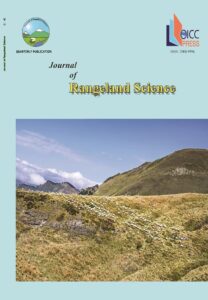Identifying Rangeland Development and Restoration Operations Targets (Case Study: Hossein Abad Bazoft Basin, Chaharmahal and Bakhtiari Province, Iran)
Authors
Abstract
The purpose of this study was identifying rangeland development and
restoration operations targets. This study was conducted in Hossein Abad Bazoft basin
with 7162 ha area, located in south east of Farsan County, Chaharmahal and Bakhtiari
Province, Iran. The basin has various land uses including rangeland, forest, irrigated farm
and garden, dry farm, residential area and rock mass. In this study, during land surveying
process, ecological carrying capacity was first calculated for the rangelands and forests
ecosystem. After capability evaluation, with regard to keeping the current land use and
avoiding from more land degradation, restoration programs were proposed. In this regard,
required data layers including altitudinal classes, slope classes, aspect classes, rangeland
condition and trend, climate, soil hydrologic groups, depth and texture of the soil, geology
and geomorphology were overlaid using GIS 9.3 by intersect method, and 280
homogenous units were resulted. The results of homogenous unit characteristics
assessment showed that the region fell respectively in the categories 1, 3, 6, 3 and 4 for
conservation, rangeland, forest, agriculture and unauthorized agriculture capabilities.
Finally, according to the characteristics of the achieved capabilities and defining required
criteria to propose each executive program, we proposed the location and the kind of the
executable restoration programs such as exclosure, hill seeding, converting the inefficient
dry farms to forage plants cultivation and in forest quantitative and qualitative
regeneration.


